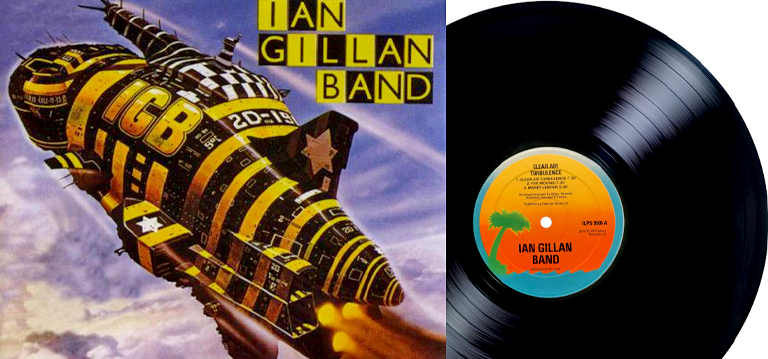I’m sure you all know Gillan, but what about The Ian Gillan Band? I loved them and was surprised the records didn’t make the charts. I suppose everything in the UK at the time was punk and new wave, and they definitely weren’t that.
Formed in 1975 by Ian Gillan, following his departure from Deep Purple in 1973. After a period away from the music industry, Gillan's appearance at Roger Glover's 'Butterfly Ball' concert in October 1975 supposedly spurred his return.
Initially calling themselves Shand Grenade (terrible), the band's name was soon changed to the Ian Gillan Band. The initial lineup featured guitarist Ray Fenwick (an unnoticed but great session guitar player who was in the Spencer Davis Group 67-70 and wrote the Magpie theme tune!), bassist John Gustafson, keyboardist Mike Moran (yes, the Rock Bottom writer who also wrote No Mean City - the theme from Taggart for Maggie Bell and The Krypton Factor theme!) drummer Mark Nauseef (also formerly of Elf). Roger Glover produced their first album, Child in Time, released in 1976. The album featured a sound distinct from Deep Purple, leaning towards progressive jazz fusion.
Keyboardist Mike Moran was soon replaced by Mickey Lee Soule (ex-Elf and Rainbow), who then gave way to Colin Towns by May 1976. This lineup recorded their second album, Clear Air Turbulence, released in 1977. It had a brilliant cover. The album further explored their jazz fusion direction and was satisfyingly complex. I thought it’d be loved, but it wasn’t the right time for that sound.
Their third album, Scarabus, which has different covers depending on territory, also released in 1977, adopted a slightly more rock-oriented sound but retained the jazz fusion elements. Despite achieving some success in Japan, the band struggled to gain traction in North America and Europe, where the prevailing musical landscape was dominated by punk and new wave.
The Ian Gillan Band released a live album, Live at the Budokan, in 1978, capturing their performances in Japan. It was released as a double and as two singles. If you get only one of their records, this is the one to get. The versions of reworked Purple classics as jazz-rock numbers are excellent. However, by this time, Ian Gillan felt the band's musical direction wasn't what he wanted to pursue. In 1978, he dissolved the Ian Gillan Band, retaining only keyboardist Colin Towns to form his new, more hard-rocking band simply called Gillan with Bernie Torme on guitar.
Their albums remain something of a curio and a distinct chapter in Ian Gillan's extensive musical career, but one that never really got the exposure it deserved.
Sidebar
A distinct chapter in Ian Gillan's extensive career...




